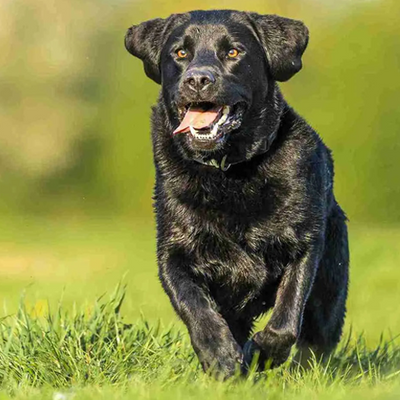The Collie Companion Guide
Quick take: Collies are intelligent, gentle, and deeply loyal dogs best known for their sensitivity, trainability, and devotion to family. Famous for their herding heritage and calm demeanor, Collies thrive in homes that value companionship, routine, and thoughtful mental engagement.
Want to explore more breeds? Visit the full hub here: Top 50 Purebred Dog Guide.
1. Introduction to the Breed
The Collie is a graceful, people-focused herding breed celebrated for its intelligence and emotional awareness. Often associated with loyalty and gentleness, Collies make excellent family dogs and are especially well-suited for households with children. They are attentive companions who prefer being near their people rather than left alone.
2. History of the Breed
Collies originated in Scotland and Northern England, where they were bred to herd sheep across rugged terrain. Over time, their calm temperament and responsiveness made them valued not only as working dogs but also as trusted companions. The breed rose to worldwide fame in the 20th century, reinforcing its reputation as a loyal, intelligent family dog.
3. Physical Characteristics
Typical Size and Weight
Collies are medium-to-large dogs. Males typically stand 24–26 inches tall and weigh between 60–75 pounds, while females are slightly smaller at 50–65 pounds. Their build is elegant yet athletic.
Coat and Color
Collies come in both rough-coated (long-haired) and smooth-coated varieties. Rough Collies have a dense double coat that sheds seasonally, while Smooth Collies have a shorter, flatter coat. Common colors include sable and white, tricolor, and blue merle.
Distinctive Features
Collies are known for their long, refined head, expressive eyes, and graceful posture. Their alert yet gentle expression reflects their thoughtful, people-oriented nature.
4. Personality Traits
Collies are gentle, intelligent, and highly responsive to human emotions. They’re known for being easy to train and eager to please, making them a great choice for families, first-time dog owners, and those interested in obedience or therapy work. They tend to be reserved rather than dominant.
5. Care Requirements
Exercise Needs
Collies require moderate daily exercise—typically 45–75 minutes. Walks, light jogging, backyard play, and training sessions help keep them physically fit and mentally satisfied without overstimulation.
Grooming Needs
Rough Collies require brushing several times per week to prevent matting and manage shedding, especially around the neck and hindquarters. Smooth Collies need less grooming but still benefit from weekly brushing. Routine nail trims, ear checks, and dental care are essential.
LibertyPaw Grooming Pick for Collies
Long-coated Collies benefit from a grooming tool that can gently work through dense fur without pulling. A shedding rake helps manage seasonal coat blow while keeping the undercoat healthy and comfortable.
Shop Grooming Tool for Collies
Prefer browsing? Explore the full grooming lineup here: LibertyPaw Pet Grooming Products
Dietary Considerations
A balanced, high-quality diet supports the Collie’s lean build and steady energy level. Portion control helps maintain ideal weight, and consistent feeding routines suit their sensitive nature. Fresh water should always be available.
6. Health and Lifespan
Collies typically live 12–14 years. Potential health concerns include hip dysplasia, eye conditions such as Collie Eye Anomaly, and sensitivity to certain medications. Responsible breeding and regular veterinary care are important for long-term health.
7. Training and Socialization
Collies are highly trainable and respond best to positive reinforcement. Because they’re sensitive, harsh corrections should be avoided. Early socialization helps them remain confident and calm in new environments and around unfamiliar people or animals.
8. Ideal Home Environment
Collies thrive in calm, structured homes where they can be part of daily life. They do well in suburban or rural settings but can adapt to apartment living if exercise needs are met. More than space, they value companionship and routine.
9. The Best Dog Bed for a Collie
Collies are medium-to-large dogs that benefit from a bed offering both comfort and support after daily activity. A quality bed encourages proper rest and helps protect joints as they age.
A cushioned bed with gentle structure helps distribute weight evenly and reduces pressure on hips and shoulders—especially important for active adult Collies.
Long-coated Collies also benefit from breathable materials that prevent overheating while resting indoors.
For senior Collies, supportive cushioning can help reduce stiffness and promote easier movement when standing or lying down.
Find the Right Bed for Your Collie
10. What’s the Best Toy for My Collie?
Collies enjoy toys that engage their intelligence and gentle play style. Interactive toys, fetch options, and light tug games are all excellent choices for this breed.
LibertyPaw Toy Picks for Collies
Toy Pick #1: LibertyPaw Firefighter Firehose Tug Toy
A durable yet flexible tug toy that works well for gentle interactive play and bonding without being overly intense.
Toy Pick #2: LibertyPaw Plush Hydrant Dog & Cat Toy
A soft toy ideal for indoor play and comfort, matching the Collie’s gentle, family-oriented temperament.
Want more USA-made options? Browse the full toy collection: LibertyPaw American-Made Pet Toys
11. Adoption and Breeder Tips
When choosing a Collie, look for breeders who screen for eye conditions and hip health and emphasize temperament. Early socialization and gentle training set Collies up for success. Breed-specific rescues are also a wonderful option for welcoming a loyal, loving Collie into your home.
Disclaimer: This breed guide is intended for general informational purposes only and does not replace professional veterinary advice, diagnosis, or treatment. Every dog is unique, and individual needs may vary based on age, health, activity level, and environment. Always consult a licensed veterinarian or qualified canine professional before making changes to your dog’s diet, exercise routine, grooming regimen, or health care.






0 comments